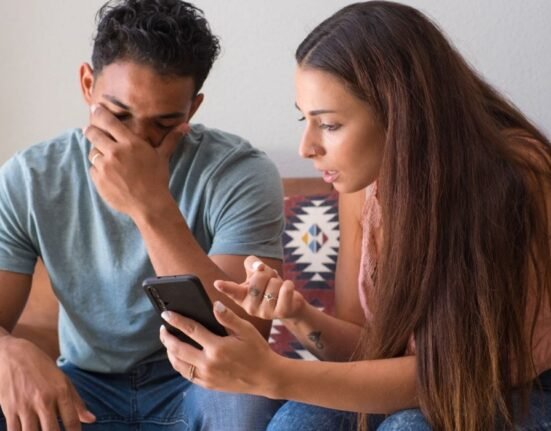Do you have your guard up every time your loved ones talk about emotional stuff? Or do you leave your inhibitions and become emotionally open with them? What stops you from becoming vulnerable?
Emotional Vulnerability
Simply put, vulnerability is a state of being exposed, open and emotional vulnerability is willingly articulating your emotions, fears, desires and experiences without hiding anything. According to an American social worker Brenè Brown, emotional vulnerability is the core of emotions like, grief, shame, fear, and regret but it is also the root of love, belonging, accountability and courage.
Signs of Emotional Vulnerability
People show emotional vulnerability in many ways.
- Recognising your mistakes: Acknowledging and accepting your failures or mistakes is the most vulnerable thing you could ever do. Admitting your mistakes and apologising could save a relationship from breaking.
- Reciprocity: Actively listening to someone’s feelings and sharing your emotions related to it will give a safe space for both involved. This to and fro of sharing will give you clarity about the situation at hand or it might give a good understanding of the person you’re conversing with.
- Deep conversations: Sharing the most pivotal moments of your life or about the loss you suffered leads to deep conversations. Such conversations make you empathise with other people’s vulnerabilities as well.
Why do People Avoid it?
Becoming emotionally vulnerable is not easy and that’s why many people avoid it. The usual fears include-
- Others may perceive me as too emotional or “weak”.
- Others may judge or criticize.
- To prevent shame or embarrassment.
- They may take advantage of my openness.
But through an optimistic lens, vulnerability helps to build a healthy, empathetic and strong relationship with yourself and others.
Vulnerability unlocks Strong Relationships
Increases emotional intimacy and trust
Being vulnerable with your partner can bring you both closer like never before. Saying things you had never shared with anyone sheds light on your hidden wounds and fears. And when your partner knows your wounds and triggers he or she can better understand your mindset. When the mindsets of two people match, harmony and intimacy flow in naturally. It deepens your connection as the trust levels and compassion increase with emotional vulnerability.
Improves communication
When there is an open verbal exchange of thoughts and emotions between two friends, a couple or between a parent and child there is more scope for understanding and problem-solving. Conflict resolution becomes quick and straightforward. For example, in an argument between a couple, if one person is not verbalising his/her emotions, the argument is fuelled with misinterpretations and misunderstandings leading to more confusion and bigger conflicts.
- Lowers anxiety and stress levels: bottling up emotions is detrimental to mental health and a healthy coping mechanism is expressing emotions freely. People who have a healthy emotional connection with loved ones experience less stress and anxiety when bad luck befalls in life.
- Strengthens commitment: knowing a person inside out makes you trust them in every unpleasant situation in life. It deepens your commitment and loyalty in the relationship.
- Mutual support: being vulnerable makes you support each other no matter what happens. They always have your back and they defend or protect you in times of need.
- Authentic bonds Grow: vulnerability means accepting yourself and when you give your authentic self in relationships, it naturally promotes genuine interactions.
Becoming Vulnerable
If you’re trying to become vulnerable remember these-
- Active listening is as important as sharing.
- Take constructive criticisms and honest feedbacks.
- Practice self-awareness to increase your emotional intelligence.
- Embrace your mistakes.
- Practice self-love and self-care.
- Tell someone when they hurt you or if they are being insensitive.
- Blame others less.
- Challenge your negative beliefs surrounding vulnerability.
- Practice mindfulness– become more aware of your feelings and build your emotional literacy.
- Set clear boundaries- emotional vomit is not the same as genuine, meaningful vulnerability.
Research shows that women are more comfortable becoming emotionally vulnerable but men hesitate. This hesitation comes from social conditioning in which men are expected to remain stoic and are often told-“men shouldn’t cry”. Break these harmful societal norms and put a full stop to toxic masculinity. Emoting, crying, and verbalising your hurt feelings are manly and extremely attractive.
Being vulnerable increases your self-esteem and resilience. It helps you embrace your true self and mature your relationships. Brenè Brown said, “When we deny our emotion it owns us. When we own our emotions, we can rebuild and find our way through pain.” So welcome and practice vulnerability to build and protect your relationships. Because “To see and to be seen is the truest nature of love!” — Brenè Brown.
Want to share something with your loved one? Call right away! Share this to your friends and tell them, vulnerability is beautiful.
FAQs
1. Is it okay to become Vulnerable?
Yes. Becoming vulnerable creates very strong interpersonal relationships, improves self- awareness and overall emotional well-being.
2. Can Vulnerability Be Unhealthy?
Yes! Emotional vulnerability can be misused like, manipulating, avoiding responsibility, seeking constant external validation, oversharing or emotional dumping. Its important to strike a healthy balance when you become or let someone become vulnerable with you.
3. Is vulnerability attractive?
Yes. Vulnerability means truthfulness. And isn’t honesty attractive? Of course, it is!
References +
Wikipedia contributors. (2024, July 31). Vulnerability. Wikipedia. https://en.m.wikipedia.org/wiki/Vulnerability
Krauss, P. (2024, January 5). The importance of being emotionally vulnerable in relationships – Grand Rapids, MI – Health for Life. Health for Life Counseling. https://healthforlifegr.com/emotionally-vulnerable-in-relationships/
https://www.jmu.edu/counselingctr/self-help/relationships/vulnerability.shtml#:~:text=Many%20individuals%2C%20not%20wanting%20to,core%20of%20emotions%20and%20feelings.
Fritscher, L. (2023, November 20). How to be vulnerable. Verywell Mind. https://www.verywellmind.com/fear-of-vulnerability-2671820
Calm Editorial Team. (2024, April 16). How to be more vulnerable: 5 ways to practice being vulnerable — Calm Blog. Calm Blog. https://www.calm.com/blog/being-vulnerable













Leave feedback about this